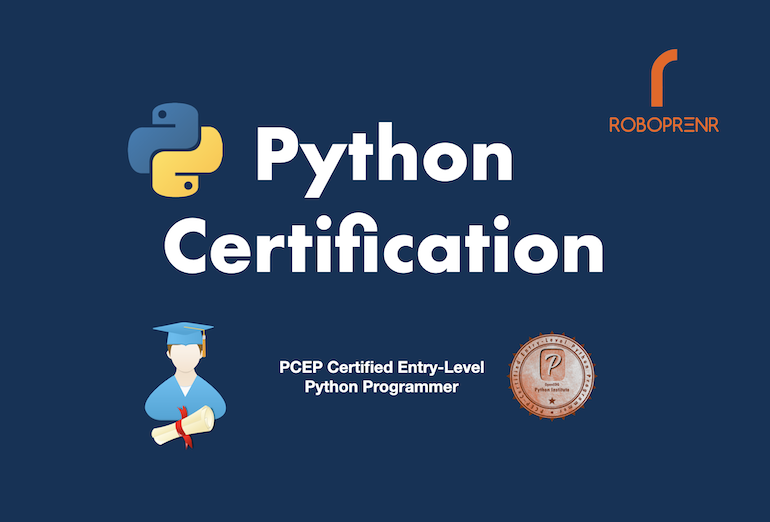1668A, 14th Main Rd, Sector 7, HSR Layout, Bengaluru, Karnataka 560102
+91 99459 30733 (9am - 6pm IST, Saturday - Sunday) (10am - 7pm IST, Tuesday - Friday)

With the growing need for Python programmers it is now more important than ever to gain recognition for your programming expertise and be able to prove your skills. A certificate is the first step to demostrate your skill and passion for programming.
Python Institute exams are a good way to complete the education process. From a psychological point of view, it is a great motivator as it gives you, the learner, a goal and a sense of completeness. Python certification exams provide you with useful and unbiased information about what you know and what you should know in order to achieve another milestone.
Taking the certification exam gives you a chance to check, prove, and validate your skills.
This course is designed to prepare you throughly for PCEP exam from Python Institute and also build a strong foundation in Python coding. Course comes with lot of practice assignments that will set you on path to ace the Python certification exam.
Note: This certification exam is conducted by Python Institute. There will be an additional exam fee (USD 59) that has to be paid to the institute by the student at the time of exam registration.
PCEP – Certified Entry-Level Python Programmer Certification: Exam Syllabus
Exam block #1: Basic Concepts (17%)
Objectives covered by the block (5 exam items)
Exam block #2: Data Types, Evaluations, and Basic I/O Operations (20%)
Objectives covered by the block (6 exam items)
Exam block #3: Control Flow – loops and conditional blocks (20%)
Objectives covered by the block (6 exam items)
Exam block #4: Data Collections – Lists, Tuples, and Dictionaries (23%)
Objectives covered by the block (7 exam items)
Exam block #5: Functions (20%)
Objectives covered by the block (6 exam items)